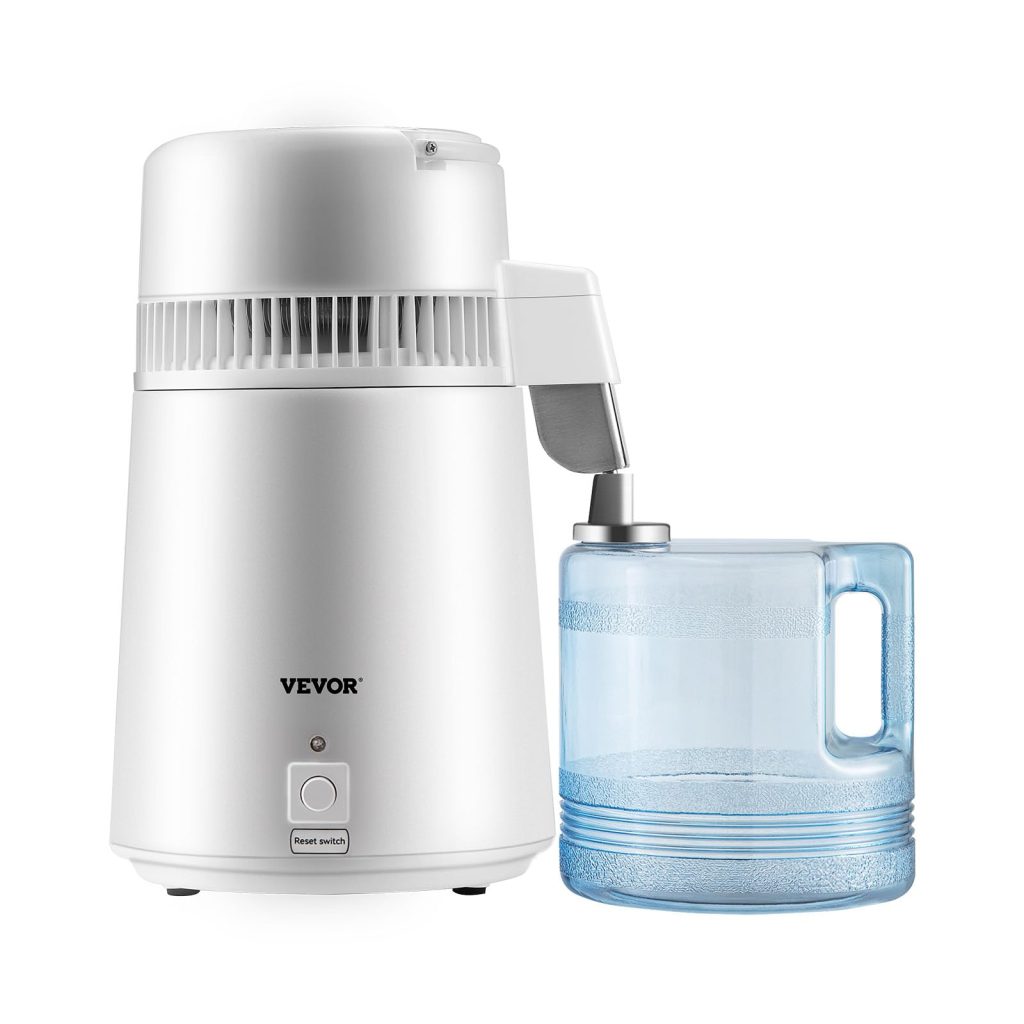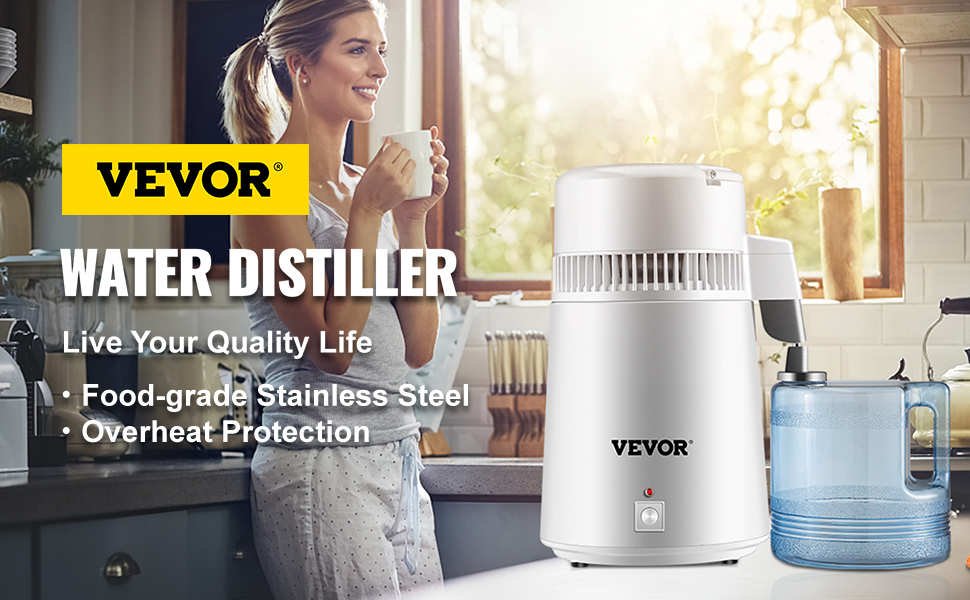Uncategorized
Why Distilled Water Could Be Your Home’s Best Kept Secret: Benefits, Uses, and How to Make It
In my quest to save money on buying distilled water from the store, I found a great water distilling machine from Vevor and figured I’d share my thoughts on distilled water and include the unboxing I did on the Vevor water distiller that I purchased.
Everything You Need to Know About Distilled Water and Why It’s Useful at Home
If you’re looking to improve the quality of the water in your home, you’ve probably come across distilled water as a great option for drinking, cooking, and other uses. But what exactly is distilled water, and how can it benefit your household? In this article, we’ll explore what distilled water is, its common uses in the home, what to look for in a water distiller machine, and the pros and cons of making your own distilled water.
What Is Distilled Water?
Distilled water is water that has been purified through a process called distillation. In simple terms, water is boiled, and the steam is collected and condensed back into liquid form. This process removes most impurities, including minerals, chemicals, and bacteria, making distilled water one of the purest forms of water available.
Since distilled water has had its contaminants removed, it is often free from pollutants found in regular tap water, such as chlorine, lead, and other chemicals.
Common Uses of Distilled Water in the Average Home
- Drinking and Cooking
Distilled water is often used for drinking and cooking, especially by people who want to avoid potential contaminants in their tap water. It’s a popular choice for making baby formula, tea, coffee, or soup since it’s free from minerals that might affect taste or safety. - Humidifiers and Steam Irons
Distilled water prevents mineral buildup in household appliances like humidifiers and steam irons. Regular tap water can leave behind residues, causing clogging and reducing the lifespan of these devices. - Car Maintenance and Battery Top-Ups
In car maintenance, distilled water is used to top up lead-acid batteries or radiators since it doesn’t contain minerals that could cause corrosion. - Aquariums and Pet Care
Aquariums and pet habitats that require clean, mineral-free water often rely on distilled water to keep animals healthy and to maintain proper water conditions. - Cleaning Purposes
Distilled water is excellent for cleaning delicate surfaces, electronics, or windows without leaving streaks or mineral deposits behind.
What to Look for in a Distilled Water Machine
If you’re considering distilling your own water at home, choosing the right machine is crucial. Here are some factors to keep in mind:
- Capacity: Consider how much distilled water your household needs. Some machines, like the Vevor Water Distiller Model YMK40101, offer a 4L capacity, making it a great option for most families.
- Build Quality: Look for machines made from high-quality materials like stainless steel, which are durable and resistant to rust or corrosion.
- Ease of Use: Some machines are more user-friendly than others. Look for one with a simple design, easy assembly, and minimal maintenance needs.
- Filtration System: Although distillation removes most contaminants, some machines also include additional filters to improve water quality further.
- Energy Efficiency: Check how much power the machine consumes. Some units are more energy-efficient, saving on electricity bills in the long run.
- Price: Consider your budget. Water distillers come in a wide range of prices, so finding one that fits your needs and your wallet is essential.

Pros and Cons of Distilling Water at Home
Like any home improvement project, distilling your own water comes with advantages and a few drawbacks. Here’s a look at both:
Pros:
- Pure, Clean Water: Distillation removes harmful chemicals, heavy metals, bacteria, and other contaminants, ensuring safe drinking water.
- Cost Savings: After the initial investment in a distillation machine, you can save money compared to buying bottled distilled water regularly.
- Versatility: Having distilled water at home means you can use it for more than just drinking. It’s useful for appliances, car maintenance, and even cleaning.
- Control: When you distill your own water, you control the entire process, ensuring the purity of your water.
Cons:
- Energy Consumption: Water distillers use electricity to boil water, which could lead to higher energy bills if used frequently.
- Mineral Deficiency: Distilled water is stripped of all minerals, which some people believe is not ideal for long-term drinking. Many experts recommend supplementing with minerals if distilled water is your primary water source.
- Time-Consuming: The distillation process takes time, especially if you need large amounts of water regularly.
- Initial Investment: Buying a quality water distiller can be a significant upfront cost, though it can pay off over time.
Conclusion
Distilled water can be a great addition to your household for various purposes, from drinking to keeping appliances running smoothly. If you’re interested in producing distilled water at home, investing in a high-quality distiller like the Vevor Water Distiller Model YMK40101 can make the process easy and convenient. While there are some cons to consider, the benefits of having pure, contaminant-free water are well worth it for many families.
Be sure to check out my unboxing video of the Vevor Water Distiller for a closer look at how it works and whether it might be the right fit for your home!


